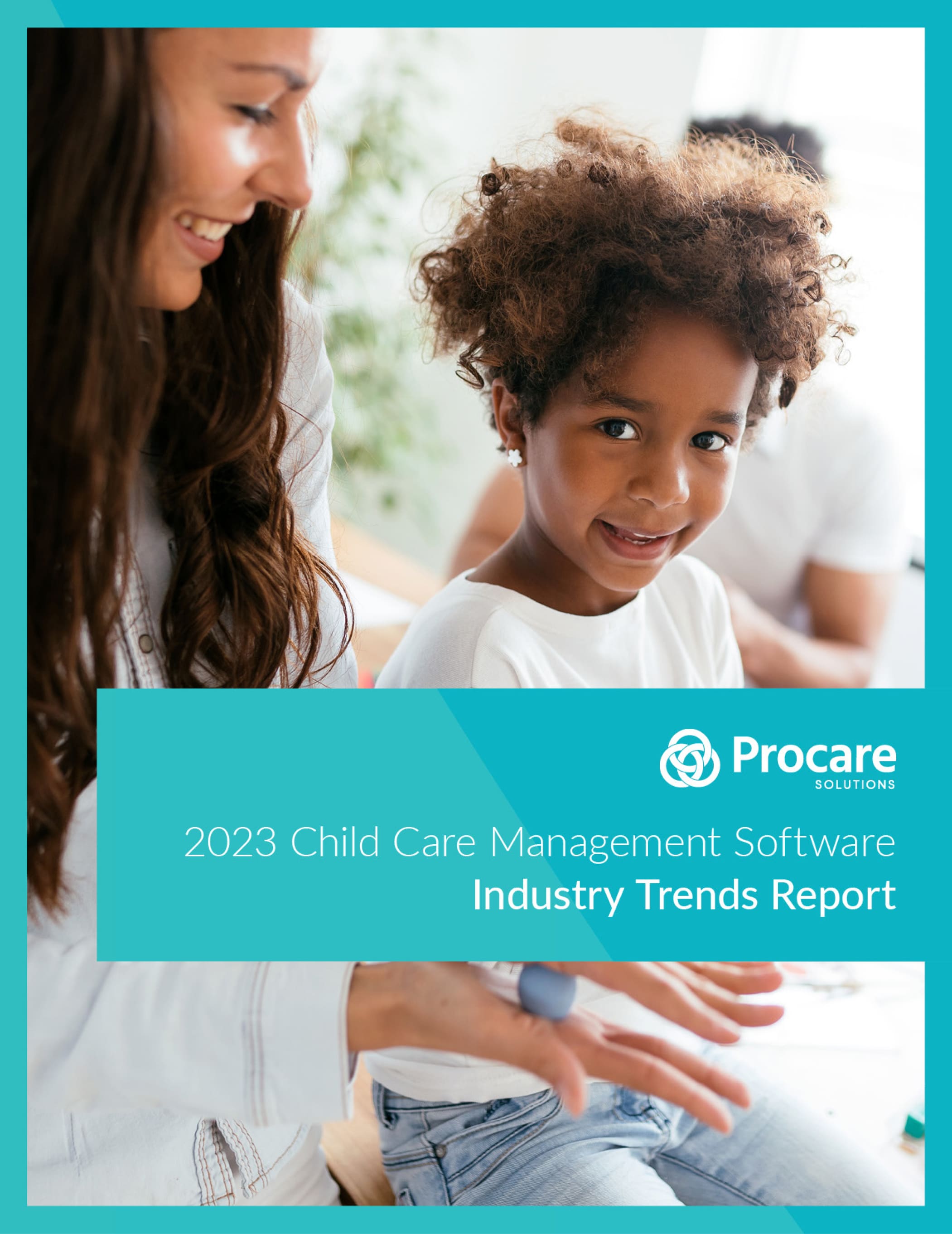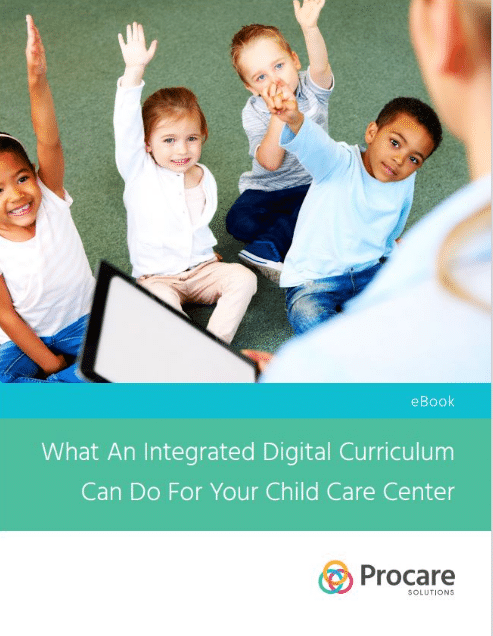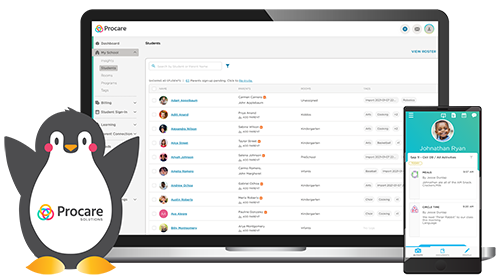
This blog was originally published on March 9, 2023, and updated with new information on October 5, 2023.
Many studies have shown a spike in developmental delays and challenging behaviors among the so-called “COVID generation,” who are children born during or shortly before the pandemic.
This comes at a time when child care centers and early childhood education programs are struggling with the high cost of curriculum that often isn’t tailored to the needs of young learners, or quickly becomes outdated in paper-filled binders.
The 2023 Child Care Management Software Industry Trends Report from Procare Solutions found that 20% of those who responded to the survey used to compile the report cited issues with creating curriculum .
Let’s take a deeper look at the report’s findings, and what you can do to enhance the learning of children in your care while supporting your teachers as you struggle with staffing shortages!
Why Curriculum Matters in Early Learning
Early childhood education curriculum is important because it “clearly describes what you want children to learn,” according to Wisconsin Model Early Learning Standards.
It defines which child outcomes are being aimed for, and it describes the sequence: the “what comes next” for the child to learn and teachers to teach, so the child moves closer to intended learning outcomes.
Studies have shown that early learning education leads to better academic performance.
For example, kids who go to preschool are generally able to adjust to the rigors of kindergarten better than kids who stay home with their parents. This is because they’ve already been exposed to teacher expectations and school-like routines.
Early childhood education has also been proven to reduce the chance of special education placement and increase the likelihood of high school graduation.
And the U.S. National Institute of Health found that children up to 4 years old who attend a high-quality daycare achieve higher academic scores as teenagers.
Managing Covid Delays in Young Learners
A recent article from USA Today reported that according to a handful of small studies, children born during the pandemic score lower on average on tests of gross motor, fine motor, social and problem-solving skills compared with those born before COVID-19.
Many of these children are talking, walking and interacting later and less frequently. They’re more prone to outbursts, physical aggression and separation anxiety. That is in addition to delays in their learning.
The article gave the example that a 6-month-old pandemic baby is less likely than a previous 6-month-old to get into a crawling position or smile at herself in the mirror – both of which are milestones for that age group.
Child care centers are a leading provider of early childhood education and will play a vital role in addressing these delays to help young learners recover. An easy-to-use curriculum can support this goal, but such programs are not frequently used or are considered too time consuming for teachers.
Helping ECE Teachers Help Children
In December 2022, Procare Solutions conducted a survey of more than 100,000 stakeholders in child care on child care management software and other technology usage to illustrate benchmarks and how automation can put time back into child care providers days.
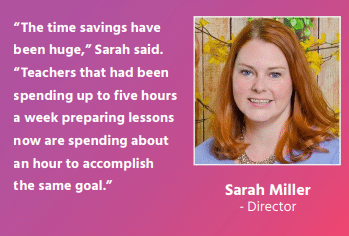
Twenty percent of survey respondents cited issues with creating curriculum. The average time spent preparing curriculum is 3.5 hours a week and 37% of the programs surveyed are creating their own curriculum. This is time that teachers are not in the classroom.
Also, one-third of respondents still rely on paper-based curriculum, which becomes outdated quickly and often is cumbersome to understand — especially for teachers with little experience.
The high cost of some curriculum programs must also be considered. Nearly a quarter of respondents spent more than $2,000 a year staying up to date on curriculum. At a time when cost savings rank as the biggest concern to child care programs, all-digital curriculum programs that include automatic updates (versus re-ordering sets of books and binders) typically are more affordable and easier to navigate.
How Procare Early Learning Can Help
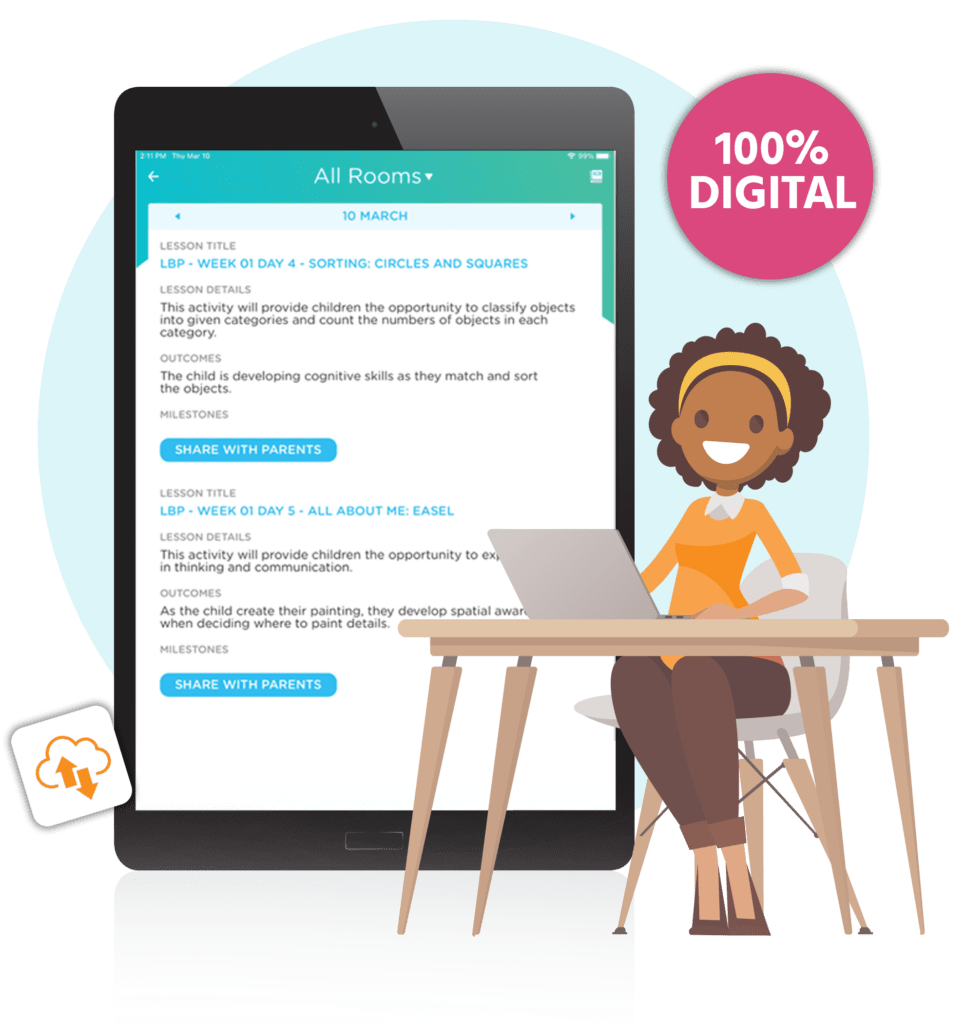
Curriculum dramatically enhances a child’s education and software tracks child’s developmental growth, enabling significant strides to be made toward returning to learning normalcy.
A strong digital curriculum that’s easy to use supports your teachers and can ease some of the stress they encounter each day.
Procare Early Learning powered by Learning Beyond Paper is an all-digital curriculum specifically designed to meet the unique needs of educating children from infancy through pre-kindergarten.
It embeds Learning Beyond Paper’s early childhood curriculum, which was designed by educators with decades of combined experience, into the Procare platform, making it easier and less time-consuming for busy teachers and administrators to provide high-quality education.
And it’s saving one child care center in West Virginia up to $1,600 a month!
With Procare Early Learning powered by Learning Beyond Paper, child care centers can:
- Equip teachers with state-of-the-art online curriculum at their fingertips
- Dramatically reduce the amount of time spent on lesson planning each week
- Offer children a high-quality, developmentally appropriate curriculum
- Save money with this cost-efficient solution that’s integrated with Procare
This curriculum can be used in ALL child care center classrooms, with 52 weeks of lesson plans and more than 4,000 daily activities for infants, toddlers, preschoolers and pre-kindergarteners. Learning areas include STEAM, language and literacy, physical development, cognitive, music and movement as well as interactive reading. Plus, teachers get tips and tools they can use in real time.
Procare is the only solution that can deliver the entire early childhood education ecosystem — lesson planning, lesson delivery within the classroom as well as assessment and parent engagement. Being able to do all of these with one platform simplifies classroom management and planning!

